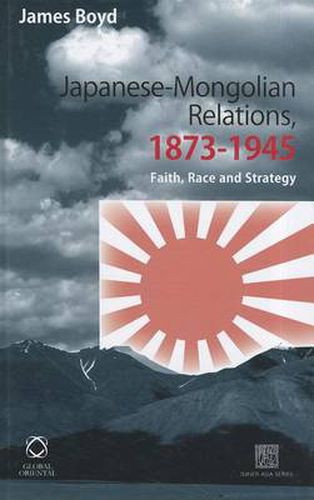Readings Newsletter
Become a Readings Member to make your shopping experience even easier.
Sign in or sign up for free!
You’re not far away from qualifying for FREE standard shipping within Australia
You’ve qualified for FREE standard shipping within Australia
The cart is loading…






This book offers the first in-depth examination of Japanese-Mongolian relations from the late nineteenth century through to the middle of the twentieth century and in the process repositions Mongolia in Sino-Japanese and Russo-Japanese relations. Beginning in 1873, with the intrepid journey to Mongolia by a group of Buddhist monks from one of Kyoto’s largest orders, the relationship later included groups and individuals from across Japanese society, with representatives from the military, academia, business and the bureaucracy. Throughout the book, the interplay between these various groups is examined in depth, arguing that to restrict Japan’s relationship with Mongolia to merely the strategic and as an adjunct to Manchuria, as has been done in other works, neglects important facets of the relationship, including the cultural, religious and economic. It does not, however, ignore the strategic importance of Mongolia to the Japanese military. The author considers the cultural diplomacy of the Zenrin kyokai, a Japanese quasi-governmental humanitarian organization whose activities in inner Mongolia in the 1930s and 1940s have been almost completely ignored in earlier studies and whose operations suggest that Japanese-Mongolian relations are quite distinct from other Asian peoples. Accordingly, the book makes a major contribution to our understanding of Japanese activities in a part of Asia that figured prominently in pre-war and wartime Japanese strategic and cultural thinking.
$9.00 standard shipping within Australia
FREE standard shipping within Australia for orders over $100.00
Express & International shipping calculated at checkout
This book offers the first in-depth examination of Japanese-Mongolian relations from the late nineteenth century through to the middle of the twentieth century and in the process repositions Mongolia in Sino-Japanese and Russo-Japanese relations. Beginning in 1873, with the intrepid journey to Mongolia by a group of Buddhist monks from one of Kyoto’s largest orders, the relationship later included groups and individuals from across Japanese society, with representatives from the military, academia, business and the bureaucracy. Throughout the book, the interplay between these various groups is examined in depth, arguing that to restrict Japan’s relationship with Mongolia to merely the strategic and as an adjunct to Manchuria, as has been done in other works, neglects important facets of the relationship, including the cultural, religious and economic. It does not, however, ignore the strategic importance of Mongolia to the Japanese military. The author considers the cultural diplomacy of the Zenrin kyokai, a Japanese quasi-governmental humanitarian organization whose activities in inner Mongolia in the 1930s and 1940s have been almost completely ignored in earlier studies and whose operations suggest that Japanese-Mongolian relations are quite distinct from other Asian peoples. Accordingly, the book makes a major contribution to our understanding of Japanese activities in a part of Asia that figured prominently in pre-war and wartime Japanese strategic and cultural thinking.